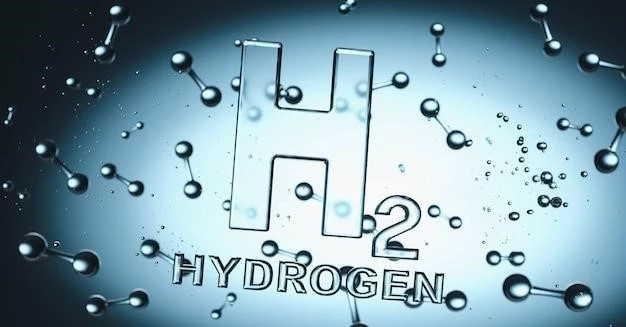Introduction
Methylcobalamin is essential for DNA and protein methylation, as well as neuronal health․ Deficiency can lead to serious conditions like homocystinuria and megaloblastic anemia․ Learn more about this vital vitamin B12 form․
Methylcobalamin⁚ An Essential Vitamin B12 Form
Methylcobalamin, an active form of vitamin B12, plays a crucial role in DNA and protein methylation, as well as supporting neuronal health․ Deficiency can lead to serious conditions like homocystinuria and megaloblastic anemia․ It is essential for various physiological processes and should be ensured through adequate dietary intake or supplementation․
Understanding the Disease
Homocystinuria and megaloblastic anemia are conditions linked to methylcobalamin deficiency and cbl E complementation type, affecting crucial metabolic pathways․ Seek detailed information for a better understanding․
Homocystinuria and Megaloblastic Anemia
Methylcobalamin deficiency can lead to homocystinuria and megaloblastic anemia, both of which are serious conditions affecting crucial metabolic pathways․ Understanding the impact of these conditions is vital for early detection and proper management․ Seek detailed information to recognize the symptoms and seek appropriate medical advice․
cbl E Complementation Type
Explore the rare autosomal recessive disorder, cbl E type homocystinuria, characterized by megaloblastic anemia and developmental delay․ Learn about the underlying causes and manifestations of this condition․
Characteristics of cbl E Type Homocystinuria
The cbl E type homocystinuria presents with megaloblastic anemia, developmental delays, and defects in the cobalamin-dependent pathway․ This rare autosomal recessive disorder is crucial to understand for early detection and appropriate management․ Seek detailed information on the genetic and clinical aspects of this condition․
Clinical Manifestations
Identifying the symptoms of cbl E complementation type is essential for timely diagnosis and treatment․ Learn about the signs that may indicate methylcobalamin deficiency and its associated conditions․
Symptoms of cbl E Complementation Type
The cbl E type homocystinuria may present with clinical manifestations such as megaloblastic anemia, developmental delays, and defects in the cobalamin-dependent pathway․ Recognizing these symptoms is crucial for early detection and intervention in cases of methylcobalamin deficiency․ Seeking prompt medical advice upon noticing any of these signs can lead to timely management and improved outcomes․
Genetic testing is essential for identifying methylcobalamin deficiency, especially in cases of cbl E complementation type․ Understanding the diagnostic process can aid in early intervention and management․ Consult healthcare professionals for proper evaluation․

Diagnosis and Testing
Genetic testing plays a crucial role in identifying methylcobalamin deficiency, especially in cases of cbl E complementation type homocystinuria․ Understanding the diagnostic process can aid in early intervention and tailored treatment plans․ Consult medical professionals for proper evaluation and management strategies․

Treatment Options
Effective management strategies are crucial for cbl E complementation type to address methylcobalamin deficiency․ Explore treatment options and consult healthcare providers for personalized care plans․
Management Strategies for cbl E Complementation Type
Effective management of cbl E complementation type involves interventions to address methylcobalamin deficiency and associated symptoms․ Treatment may focus on supplementation, dietary modifications, and genetic counseling․ Collaborate with healthcare professionals for personalized care plans and regular monitoring to optimize outcomes․
Prevention
Take preventive measures against methylcobalamin deficiency, especially in cases of cbl E complementation․ A balanced diet and regular monitoring can help maintain optimal levels of vitamin B12․ Consult healthcare providers for personalized advice on prevention․
Preventive Measures for Methylcobalamin Deficiency
Understanding the importance of maintaining optimal vitamin B12 levels is crucial in preventing methylcobalamin deficiency, especially in cases of cbl E complementation type homocystinuria․ Incorporating B12-rich foods in the diet and regular health check-ups can help prevent deficiencies․ Consult healthcare providers for personalized advice on preventive strategies and monitoring protocols․ Early detection and intervention are key to managing methylcobalamin deficiency effectively․
Research and Future Developments
Stay updated on ongoing studies and future developments regarding cbl E complementation type․ Explore new insights and potential advancements in the diagnosis and management of methylcobalamin deficiency․ Research plays a vital role in improving outcomes for individuals affected by this condition․
Ongoing Studies on cbl E Complementation Type
Current research focuses on understanding the genetic and clinical aspects of cbl E complementation type homocystinuria․ Ongoing studies aim to enhance diagnostic methods, treatment strategies, and patient outcomes․ Stay informed about the latest developments in the field to benefit from advancements in managing methylcobalamin deficiency effectively․
Early detection and adequate management of cbl E complementation type are crucial to ensure optimal outcomes for individuals with methylcobalamin deficiency․ Stay informed about advancements and seek prompt medical attention for effective treatment․
Importance of Early Detection and Treatment
Recognizing and addressing cbl E complementation type early is key to managing methylcobalamin deficiency effectively․ Make informed choices for optimal health outcomes by seeking timely care and following personalized treatment plans recommended by healthcare professionals․
